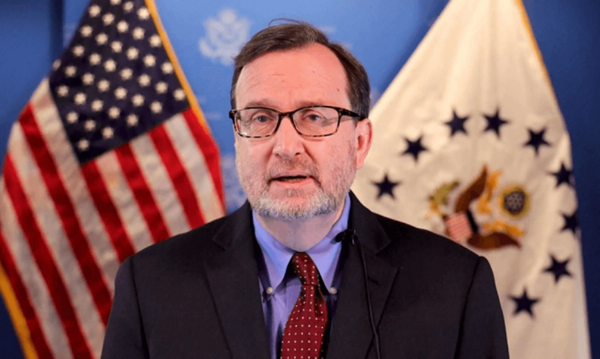
Every December, we mark three international observances central to the U.S.-Nigeria partnership: World AIDS Day, International Anti-Corruption Day and Human Rights Day. While distinct, these commemorations underscore a simple truth – Nigeria’s path forward depends on progress in health, governance and human rights. The United States remains a steadfast partner in this journey.
For two decades, the United States has supported Nigeria in the fight against HIV/AIDS under the President’s Emergency Plan for AIDS Relief (PEPFAR). The U.S. government has invested over $8.3 billion in Nigeria’s health sector and provided life-saving antiretroviral treatment to more than 1.5 million people. These efforts have not only improved life expectancy and quality of life for Nigerians but have also strengthened the nation’s health system.
During my visits to clinics across Nigeria, I have met dedicated healthcare workers delivering HIV prevention, treatment, and care, supported by the resources of the American people. This work has saved lives and bolstered the broader health system. As Nigeria’s healthcare infrastructure grows stronger, sustained progress will depend on government leadership and private sector engagement. Ambassador Nkengasong’s recent visit reinforced this commitment, focusing on how the government of Nigeria can sustain HIV health programmes through strengthened leadership and local ownership.
However, positive health outcomes are inextricably linked to good governance. When medical supplies are diverted, healthcare workers go unpaid, or counterfeit medications enter the system due to mismanaged funds, lives are at risk. This is why the United States supports various initiatives, particularly in the health sector, to enhance transparency and accountability in Nigeria. Our programmes work with government agencies and civil society organisations to promote fiscal responsibility and ensure resources reach their intended beneficiaries.
The success of these efforts also depends on respect for human rights and civic engagement. When marginalised communities face discrimination in accessing healthcare, when citizens are afraid to report corruption such as being charged for ‘free’ services, or when vulnerable populations cannot advocate for their needs, progress stalls. Through our partnership with Nigeria, we champion the rights of all individuals to access essential services and exercise fundamental freedoms without fear or discrimination.
These three pillars – health, transparency and human rights – are interconnected and mutually reinforcing. Consider the impact: U.S.-supported initiatives have strengthened pharmaceutical supply chains, reducing theft and ensuring that safe medicines reach patients. Our human rights programs empower civil society organisations to advocate for marginalised groups, resulting in better access to healthcare services. Investments in the health sector have created platforms for transparency that benefit broader governance efforts.
Perhaps most encouraging is the evidence of a shift in societal norms. A recent survey by the United Nations Office on Drugs and Crime revealed that Nigerians are increasingly refusing to pay bribes and reporting corruption to investigative journalists and legal authorities. This progress, while nascent, must continue to take root.
The U.S. Embassy stands ready to support Nigerian voices in the fight against corruption. To Nigeria’s government officials, civil society leaders, healthcare workers and citizens: your dedication to building a stronger nation is inspiring. Together, we can advance the interconnected goals of better health outcomes, good governance, and human rights for all Nigerians.
As we mark these December observances, let this moment inspire renewed commitment and action. The United States remains committed to standing alongside the Nigerian people as they strive for these essential goals with their elected government.
Mills is the U.S. Ambassador to Nigeria.

